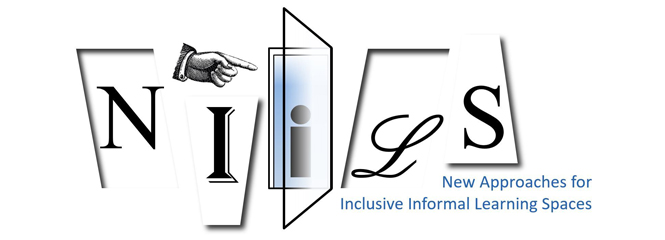
Project partners from five countries, the University for Continuing Education Krems being the coordinator from Austria, HTW Berlin from Germany, Sapienza University Rome from Italy, Mykolas Romeris University from Vilnius, Lithuania and Akdeniz University from Antalya, Turkey met on February 17th 2022 to start the project and discuss thematic and organisational details of project implementation.
The project NIILS aims to provide data on informal and non-conventional physical and hybrid learning spaces available for and used by higher education students from different social groups in different European countries and regions and to develop recommendations and guidelines for learners, lecturers, university administration and other stakeholders to mitigate existing inequalities and promote technologically enhanced inclusive informal learning environments, which are conducive to learning and users’ well-being in higher education.
Despite being virtual, it was a great and interactive start to our cooperation and to getting to know each other. Our first in-presence transnational partner meeting will take place in Berlin in June 2022. We are looking forward to meeting our colleagues in person and to finalizing our project results.
About the project
The outbreak of the COVID-19 pandemic in 2020 has forced and accelerated the development and use of digital technologies for digitally supported teaching and learning activities outside of formal institutional learning spaces such as seminar rooms and lecture halls. Informal and non-conventional learning environments, like the home environment, but also other spaces used for learning activities like public space, cultural/educational public buildings, outdoor spaces, public transport, cafés etc., are thus taking on a new relevance. These changes bring new opportunities and challenges on educational systems, teachers and learners regarding teaching and learning strategies but also the design, provision and use of physical, hybrid and virtual learning environments. NIILS addresses informal and non-conventional learning spaces, focusing on physical and hybrid learning spaces which are provided by university, by third party or personally, which can be informal campus spaces, home learning environments, public spaces, learning cafés, public transport, outdoor spaces, natural landscapes etc. Existing inequalities in access to technical equipment and internet (“digital divide”) but also to physical-spatial environments conducive to learning and well-being can pose barriers on students in higher education, depending on their socio-economic background, gender, age, disabilities and geographical location. Latest research shows, that there is broad evidence on the impact of physical learning environments on learners well-being, learning experience and students’ performance. While these findings are increasingly being taken into account in the design and operation of formal learning spaces like seminar rooms or lecture halls, there is yet little information on availability, accessibility, spatial characteristics, equipment and usage of informal or non-conventional learning spaces by different student groups.
Queries
Further Information

The European Commission support for the production of this publication does not constitute an endorsement of the contents which reflects the views only of the authors, and the Commission cannot be held responsible for any use which may be made of the information contained therein.
Tags